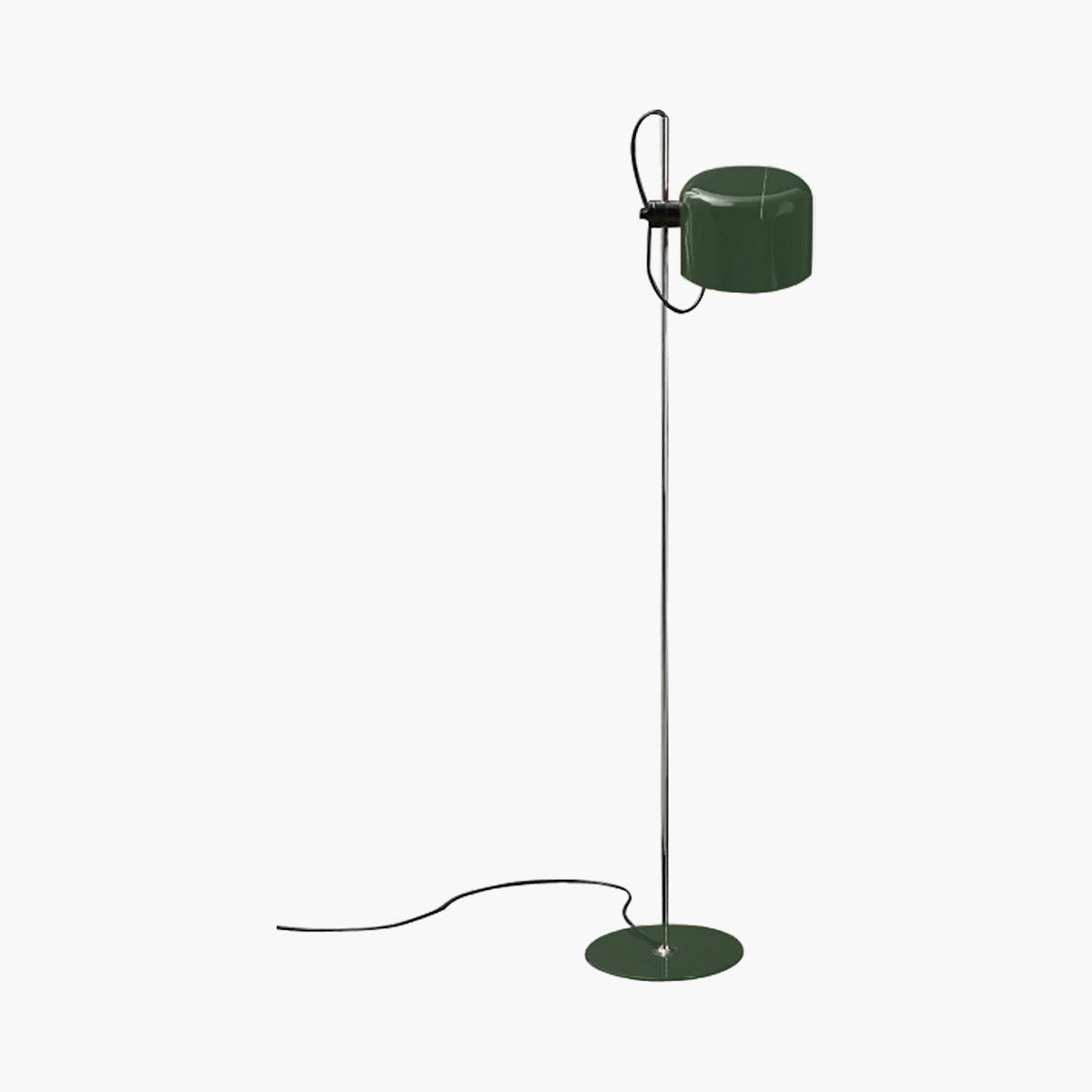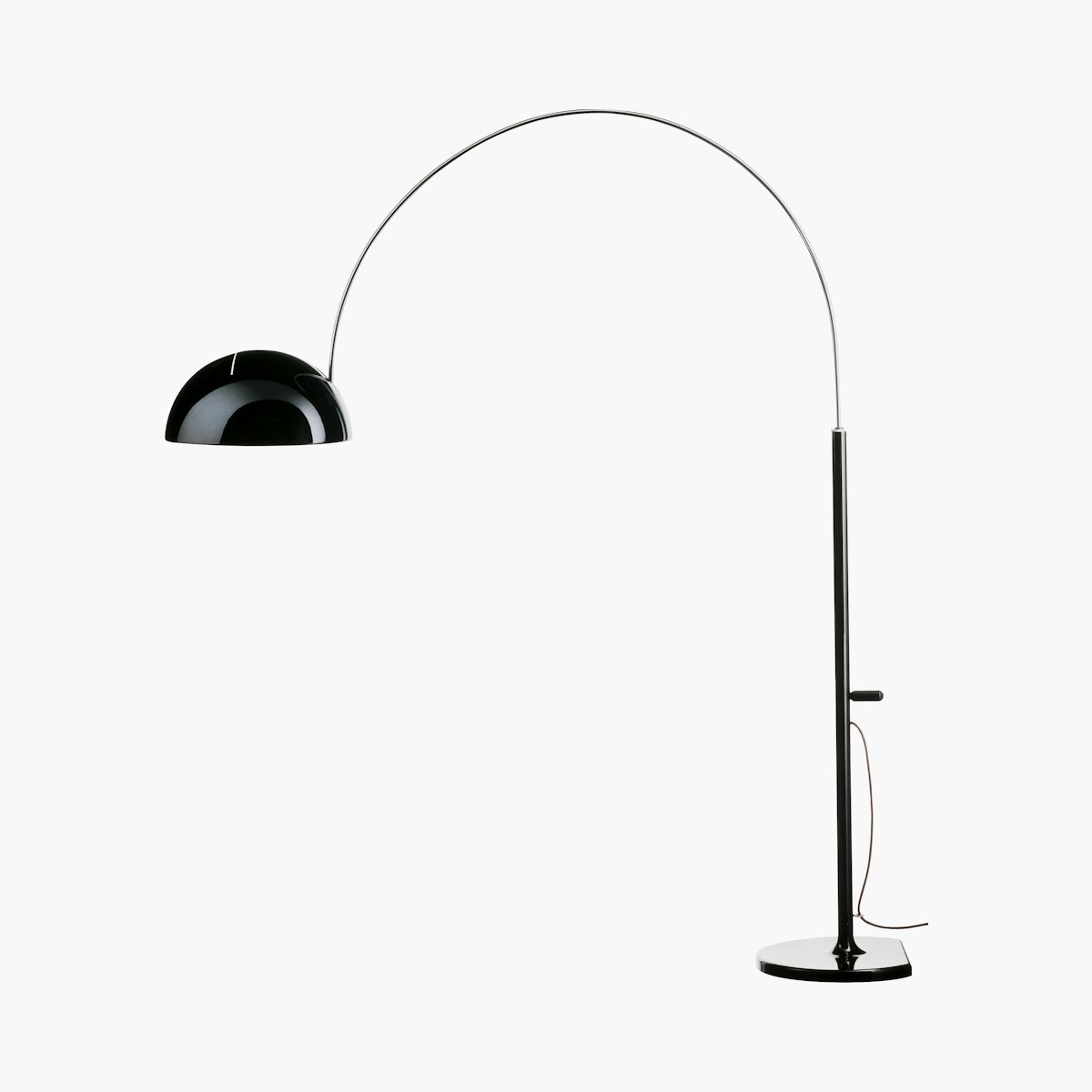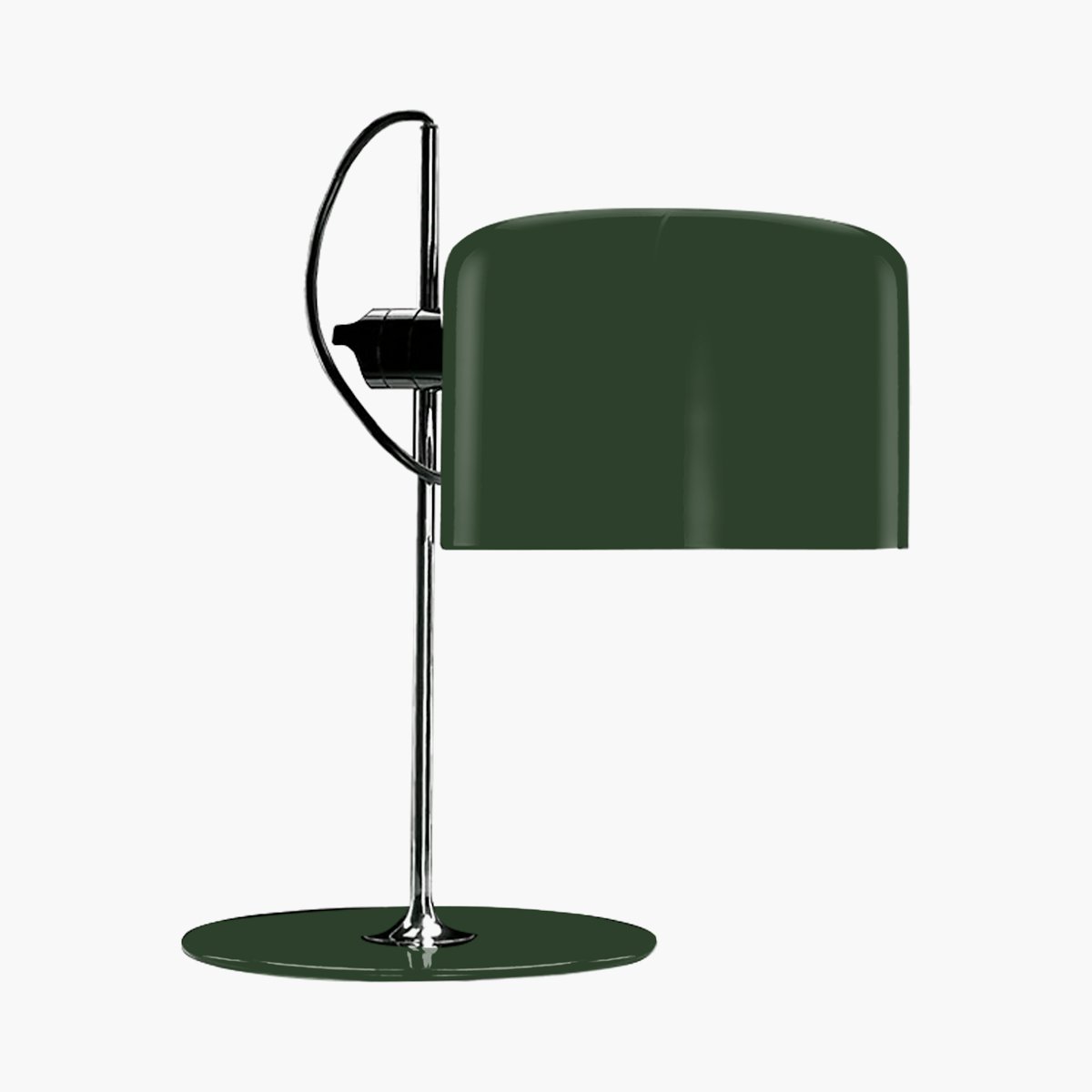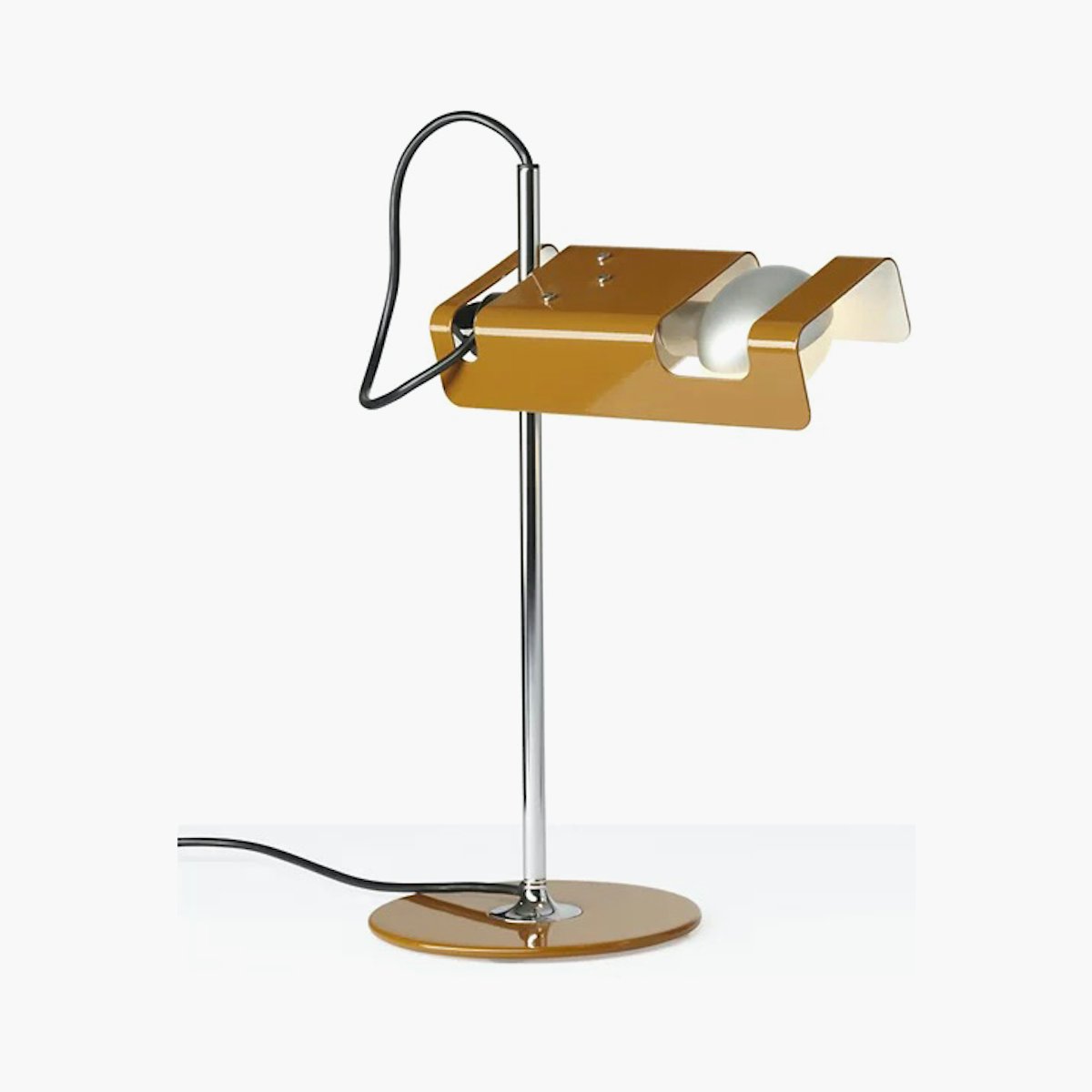One of Italy’s most innovative product designers, Joe Colombo kept “the environment of the future” in mind with virtually everything he created. Consider his predictions 35 years ago, long before the Internet and telecommuting entered our culture: “Traditional families are tending to give way to small groups created on the basis of affinity. People will be able to study at home and carry on their own activities there. Distances will no longer have much importance.”
Born in Milan to an industrious father and artistic mother, Colombo was encouraged as a child to spend hours constructing elaborate Meccano (erector set) models, which took up entire rooms of the family home. Colombo studied painting at Milan’s Accademia di Belle Arti, where he experimented with futuristic abstract. But it wasn’t long after finishing the program that he started researching product design, to which he applied the same bold, curvaceous forms characterized in his paintings.
Colombo was always one step ahead of the growing interests of the 1950s and ’60s. When consumers were fixated on the promise of a new way of living, he was experimenting with recently introduced materials and building technologies that would make this neoteric way of living possible. When his father fell ill in 1958, Colombo attempted to take over the family’s conductor manufactory, only to transform it into a playground for dabbling with fiberglass, ABS, PVC and polyethylene.
In 1963 he began a mission to invent what he called a “new type of habitat.” In furnishing these living habitats, Colombo applied his newfound production processes and the new plastics he had fully adopted. His three-year experimentation with these living systems culminated in the Total Furnishing Unit, where all living spaces – kitchen, storage, bed and bath – are contained in a single unit. The design debuted in 1972 at MoMA’s Italy: The New Domestic Landscape, just not in time for Colombo to enjoy the acclaim.
Thanks to his energy and optimism, Joe Colombo’s short career resulted in an extraordinary body of work, most of which continues to be relevant today.
Born in Milan to an industrious father and artistic mother, Colombo was encouraged as a child to spend hours constructing elaborate Meccano (erector set) models, which took up entire rooms of the family home. Colombo studied painting at Milan’s Accademia di Belle Arti, where he experimented with futuristic abstract. But it wasn’t long after finishing the program that he started researching product design, to which he applied the same bold, curvaceous forms characterized in his paintings.
Colombo was always one step ahead of the growing interests of the 1950s and ’60s. When consumers were fixated on the promise of a new way of living, he was experimenting with recently introduced materials and building technologies that would make this neoteric way of living possible. When his father fell ill in 1958, Colombo attempted to take over the family’s conductor manufactory, only to transform it into a playground for dabbling with fiberglass, ABS, PVC and polyethylene.
In 1963 he began a mission to invent what he called a “new type of habitat.” In furnishing these living habitats, Colombo applied his newfound production processes and the new plastics he had fully adopted. His three-year experimentation with these living systems culminated in the Total Furnishing Unit, where all living spaces – kitchen, storage, bed and bath – are contained in a single unit. The design debuted in 1972 at MoMA’s Italy: The New Domestic Landscape, just not in time for Colombo to enjoy the acclaim.
Thanks to his energy and optimism, Joe Colombo’s short career resulted in an extraordinary body of work, most of which continues to be relevant today.
8
Results
8
Results
View











